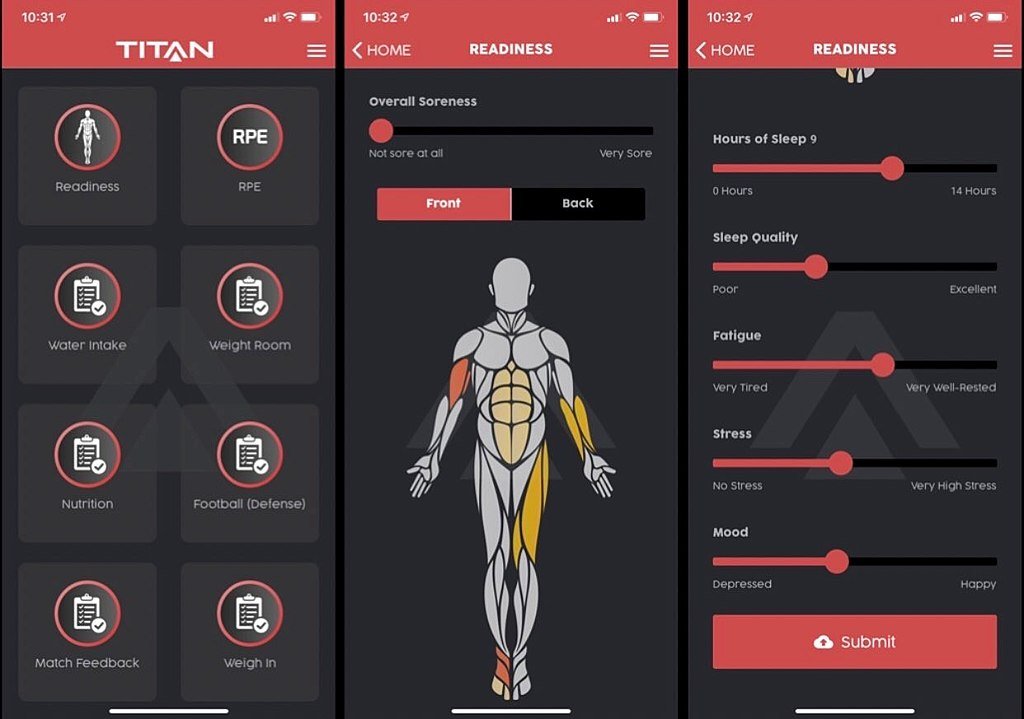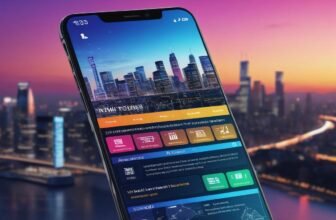How can AI be used in fitness

Is FitnessAI Worth It
Exploring AI in Fitness and Workout Routines
With the rise of artificial intelligence (AI) across industries, the fitness sector has seen a surge in AI-powered workout apps promising to optimize training and maximize results. One of the most popular options is FitnessAI, an app that uses AI-driven algorithms to tailor workouts for individual users. But is FitnessAI worth it? And more broadly, can AI truly revolutionize fitness routines? Let’s explore how AI-powered apps can enhance fitness, whether AI can replace human trainers, and the best AI solutions for personalized workouts.
Understanding AI in Fitness
AI has become a powerful tool for many aspects of health and fitness. From analyzing user data to predicting optimal workout routines, AI enhances the efficiency and effectiveness of exercise programs. These apps use machine learning to assess user progress, recommend suitable workout intensities, and modify routines based on real-time performance.
AI-powered fitness apps utilize advanced algorithms that analyze various factors such as:
- User demographics (age, gender, weight, height)
- Fitness goals (muscle building, weight loss, endurance improvement)
- Workout history (past exercises, reps, and sets)
- Recovery rates (rest periods, soreness levels, sleep quality)
By leveraging this data, AI can create customized plans that adjust over time, much like a personal trainer would.
Is FitnessAI Worth It?
FitnessAI is one of the most well-known AI-powered fitness apps available. It generates strength-training programs based on scientific principles of progressive overload. The app claims to optimize weight lifting routines by calculating the best weights, reps, and sets for users, adapting workouts to ensure consistent progress.
Pros of FitnessAI:
- Personalized Workouts: The app tailors exercises to user progress, ensuring consistent improvements.
- Data-Driven Adjustments: AI analyzes performance metrics and modifies workouts accordingly.
- Ease of Use: The app removes the guesswork from workout planning.
- Progress Tracking: Users can track performance over time and measure improvements.
Cons of FitnessAI:
- Limited Exercise Selection: Some users find the app’s library of exercises too restrictive.
- Lack of Form Correction: Unlike human trainers, AI cannot provide real-time feedback on exercise form.
- Subscription Cost: The app requires a paid subscription, which may not be ideal for budget-conscious users.
For users who prefer structured, data-driven workouts without needing a personal trainer, FitnessAI is a valuable tool. However, those who require hands-on guidance or enjoy a more varied workout routine might find it limiting.
How to Improve Fitness Routines Using AI Apps
Beyond FitnessAI, there are numerous AI-driven fitness apps designed to enhance workout routines. Here’s how AI can be used to optimize fitness programs:
1. Personalized Training Plans
AI algorithms create workout routines tailored to users’ fitness levels and goals. By analyzing past workouts, these apps adjust exercises, intensities, and rest periods to optimize performance.
2. Real-Time Performance Analysis
Some AI fitness apps integrate with wearable devices (e.g., Apple Watch, Fitbit) to track heart rate, calories burned, and movement patterns. This real-time data allows AI to provide feedback on exertion levels and suggest modifications.
3. Adaptive Workout Adjustments
AI can modify workout plans in real time based on fatigue levels, ensuring optimal rest and recovery. Apps like Freeletics and Fitbod adjust exercises dynamically based on user feedback.
4. Form and Posture Correction
Although AI cannot physically correct posture, some apps use computer vision to analyze movement patterns. AI-driven apps like Kaia Health and Tempo monitor form and provide corrective feedback using smartphone or camera sensors.
5. Virtual Coaching and Motivation
AI-powered voice assistants and chatbots can offer motivation, provide reminders, and guide users through workouts. Some apps integrate AI coaching with gamification elements to keep users engaged.
Can AI Make Me a Workout Routine?
Yes, AI can create highly personalized workout routines based on individual preferences, goals, and fitness levels. AI-powered workout generators analyze user data and provide structured plans that evolve over time. Popular apps such as Fitbod, JEFIT, and AI Trainer offer customized training programs that adjust based on real-time progress.
Some factors AI considers when creating a workout routine include:
- Current fitness level (beginner, intermediate, advanced)
- Training frequency and schedule
- Preferred workout style (bodyweight, strength training, HIIT, etc.)
- Equipment availability (gym access vs. home workouts)
- Physical limitations or injuries
By continuously analyzing progress, AI ensures that users experience gradual improvements while preventing plateaus and injuries.
What Is the Best AI for Fitness?
Several AI-powered fitness apps cater to different fitness needs. Here are some of the top AI-driven fitness platforms:
- FitnessAI – Best for strength training with AI-driven progressive overload.
- Fitbod – Excellent for personalized workout generation based on past performance.
- Freeletics – AI-powered bodyweight and HIIT workouts with coaching features.
- JEFIT – AI-driven weightlifting programs with detailed tracking.
- Kaia Health – AI-powered posture and form correction for injury prevention.
- Tempo – Uses AI and camera technology for real-time feedback on form.
Each app offers unique benefits, and the best AI for fitness depends on personal goals and preferences.
Is ChatGPT a Good Source for Workouts?
ChatGPT can be a helpful resource for workout plans, especially for those who need general guidance. It can generate custom workout routines, explain exercise techniques, and offer nutritional advice. However, there are some limitations:
Pros of Using ChatGPT for Workouts:
- Quick generation of workout routines tailored to specific goals.
- Customization options based on user input (e.g., home vs. gym workouts).
- Free access to fitness knowledge and exercise explanations.
Cons of Using ChatGPT for Workouts:
- Lacks real-time feedback on form and technique.
- Cannot track progress or make adaptive changes based on performance.
- Does not integrate with wearables or fitness apps for data analysis.
While ChatGPT is useful for generating workout ideas, it works best as a supplementary tool rather than a replacement for AI-powered fitness apps that can track progress and adjust workouts dynamically.
Will AI Replace Fitness Trainers?
AI has the potential to revolutionize fitness, but it is unlikely to fully replace human trainers. While AI-powered apps provide data-driven workout plans and real-time adjustments, they lack the personal touch, human motivation, and deep understanding that a personal trainer offers.
Why AI Won’t Fully Replace Human Trainers:
- Lack of Emotional Intelligence – AI cannot provide emotional support, motivation, or personalized encouragement like a human trainer.
- Limited Real-Time Feedback – AI apps may analyze workout data but cannot physically correct poor form in real-time as effectively as a trainer.
- Personalized Adaptation – Trainers can adjust workouts based on a client’s emotional state, energy levels, and injuries, something AI struggles to do effectively.
- Holistic Approach – Personal trainers incorporate lifestyle factors, stress levels, and mental well-being into training plans, which AI cannot fully grasp.
Is AI the Future of Fitness
AI is undoubtedly transforming the fitness industry, offering personalized, data-driven workout routines that enhance efficiency and results. Apps like FitnessAI, Fitbod, and Freeletics demonstrate the power of AI in optimizing workouts and tracking progress. However, while AI can provide valuable insights and structure, it lacks the human touch, real-time form correction, and emotional support that personal trainers offer.
For tech-savvy fitness enthusiasts, AI-powered apps are an excellent supplement to traditional workout methods. However, for those who need hands-on guidance, motivation, and real-time corrections, human trainers remain indispensable. The future of fitness likely lies in a hybrid approach, leveraging AI for data-driven insights while still valuing the expertise and motivation of human trainers.
Ultimately, AI is not here to replace fitness trainers but to enhance the way we train, making workouts smarter, more efficient, and highly personalized. Whether you choose FitnessAI or another AI-powered app, integrating AI into your fitness journey can take your workouts to the next level.





